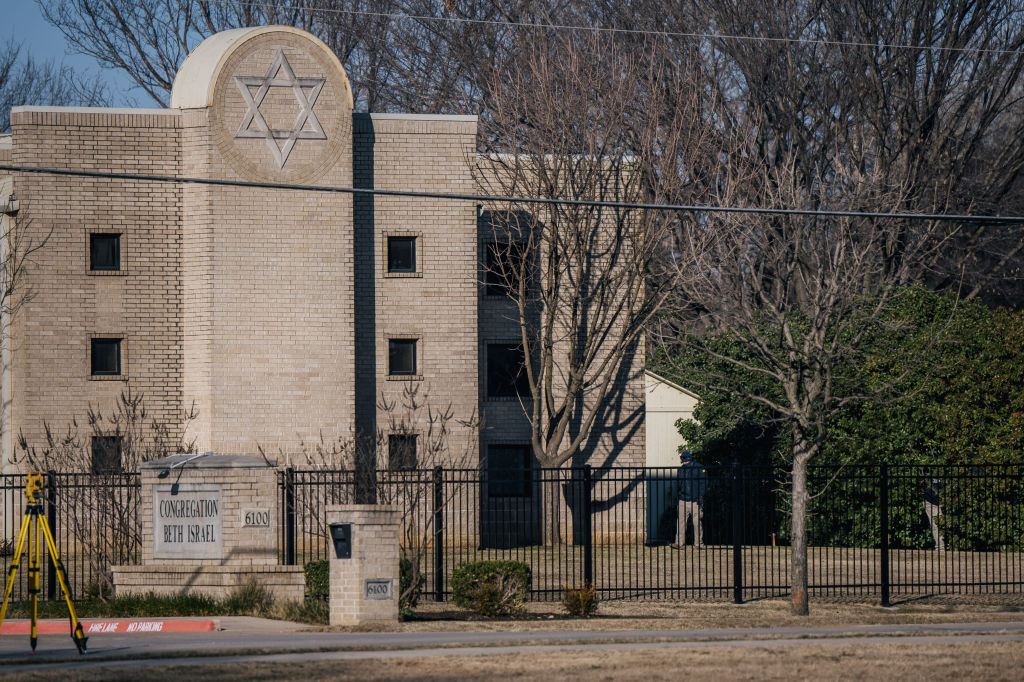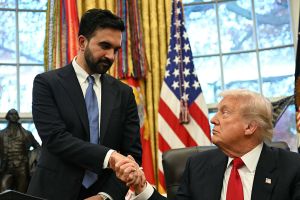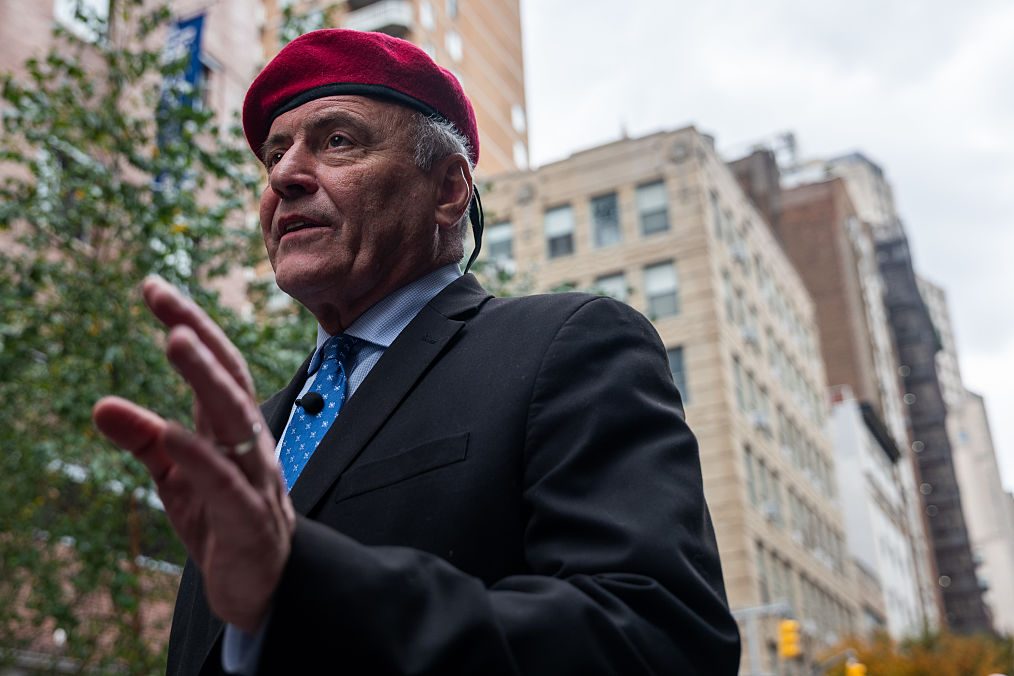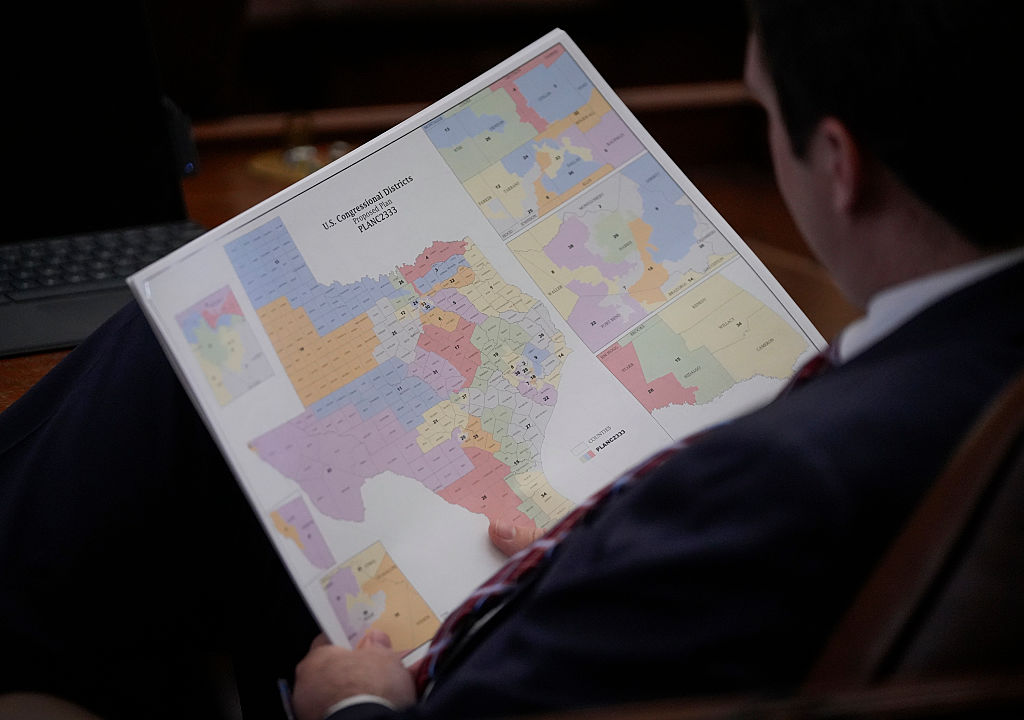Faced with some high-profile crimes, our law enforcement authorities are finding it hard to say what has prompted “suspects” to pursue deadly violence.
Even President Biden found himself baffled by what would lead a known Islamist terrorist to invade a synagogue on Saturday night and hold a rabbi and other members of his congregation hostage.
The FBI likewise for a period expressed its bewilderment. The hostage taker had demanded the release of Aafia Siddiqui, a convicted Islamic terrorist held in a Texas prison, but the FBI wasn’t about to draw any inferences from his choice of hostages or his principal demand. The FBI professed to know nothing of his motives — and President Biden nodded in agreement. He praised the good work of the police and the FBI but warned the American public away from speculating about “the motivations of the hostage taker.” He also warned against “anyone who intends to spread hate — we will stand against antisemitism and against the rise of extremism in this country.”
His decision to stand against “extremism” may be less reassuring than it could have been in light of his January 11 speech in Atlanta denouncing Republicans as “undemocratic,” determined to “subvert the election,” to “disenfranchise anyone who votes against them” and to be “on the side” of George Wallace, Bull Connor and Jefferson Davis. True, Biden stopped short of identifying his domestic political opponents as extremists and political terrorists, but it was inches short.
The real question is why would Biden make such a mystery of the motives of someone who himself made no mystery of his motives at all? A day later, Biden attempted some damage control with additional remarks in which he admitted the attack on the synagogue was “an act of terror” and somehow got to the idea that “background checks” on gun buyers would have helped things, as if the gunman could have been stopped with a wall of red tape after he apparently slipped through our undefended national border.
“Lust and greed”— I have a friend in his eighties who has convinced himself that these are the only human motives. All the other motives — love, hatred, glory, shame, joy, despair, fellow feeling, bigotry, all the way to lactose intolerance and chocolate sundaes — are disguised versions of sex and acquisitiveness.
My friend is wrong, perhaps as shown by the pleasure he takes in announcing his severely reductive formula. Neither lust nor greed could explain the little bit of contentment he gets by trying to stick a pin in the balloon of human nobility or to brush off our weaknesses. But he is wrong in so many other ways that it is hard to count. When Alex Honnold climbed El Capitan in Yosemite “free solo,” i.e. no ropes, harness or protective gear, he earned fame for doing something supremely difficult that no one had done before. Exuberance and pride were the evident motives; perhaps desire for recognition too. But lust and greed? Not hardly.
When Ernest Shackleton abandoned his ship in the Antarctic ice in November 1915 and began his astonishing journey in a small boat over hundreds of miles of open ocean to reach a whaling station at South Georgia Island, he was moved above all by determination to save his men. Let’s imagine that this determination was fed by pride as well as fear of the shame that he would feel if he abandoned them. But we don’t know. “Shackleton feared the potential effects of idleness, ennui and dissidence among his men more than he did the ice and cold,” according Nancy Koehn, writing in the New York Times. One of his biographers, Beau Riffenburgh, says that Shackleton “first went to the Antarctic in order to impress his girlfriend” and to prove he was “strong enough to take it.” Elsewhere Riffenburgh wrote that Shackleton “wanted fame and fortune but he wanted to be alive to appreciate them.”
All of which is to say that when men have done extraordinary things, we may not know exactly why, and they probably don’t know either. We can narrow the possibilities, but a certain opaqueness remains in the brave soldier attacking the enemy’s machine gun nest or the ballerina performing a fouette as the Black Swan in Swan Lake. Protecting your brothers in arms; demonstrating mastery of an art — we can name some reasons, but we also realize that something more, some quality of character, is also present.
What moves people to act heroically or to accomplish a great thing seems more mysterious than what moves people to acts of indecency, cruelty, betrayal and criminality. We get that. People come equipped with the capacity to do atrocious things. So it is appalling when Malik Faisal Akram, the Islamist who had tea with the Rabbi Charlie Cytron-Walker in Colleyville, Texas before taking him and others hostage, but his motive isn’t opaque at all. Likewise when Simon Martial pushed Michelle Alyssa Go in front of a New York City subway train, he inspires revulsion in ordinary people, but police commissioner Keechant Sewell is wrong to say it was an “absolutely senseless act of violence.” Evil is not senseless. It is self-gratifying. Malik Faisal Akram and Simon Martial sought the sense of power over life and death that comes from stepping completely outside the moral order. Martial, arrested immediately after murdering Go told reporters who asked if he did it, “Yeah because I’m God. Yes I did. I’m God, I can do it.”
No doubt this confession will be presented as evidence that Martial is mad and therefore not responsible for his actions. His sister, Josette Simon, has already blamed New York City’s mental health system for letting him roam free, and there is no doubt that the city is flush with the delusional people, though most are harmless. Martial surely has his demons, but that doesn’t explain his decision to kill. Martial was simply displaying the cold logic of someone whose motives are crystal clear. He wanted to feel supremely powerful, and pushing a complete stranger — a small Asian woman — directly in front of a train provided exactly that experience. Malik Faisal Akram is no longer with us to ask what moved him, but we know from his recorded phone conversations while holding the rabbi and others hostage, that he expected and welcomed death. He too was feeling in godlike control of his destiny and that of the others he was ready to murder.
The oddity of these cases lies not in the motives of Martial and Akram. They had succumbed to the lure of power that becomes temporarily available to those who discard the bonds of common virtue. We find submission to such evil shocking, but not because the motives are mysterious. Akram was an Islamist terrorist (a member of the Pakistan-based group Tablighi Jamaat, called by some “a gateway to terrorism”) who was eager to kill Jews because that was a defined objective of his ideology, as was his embrace of “martyrdom.” The ideology matters because it gives form and destination to evil impulses, but the capacity of people to embrace murderous rage towards others is well within human nature. It just awaits social permission, which Akram’s Islamist cult provided, and a personality that is open to extreme deviance.
Far too many such ideologies and accommodating personalities exist, but they are fortunately rare. They seem a little less rare in New York City these days. Over the last year we have had a rash of unprovoked subway and street assaults, including other instances of people being shoved onto the tracks. These are not Islamist attacks, but a great many are cases of black assaults on Asians and whites. Police, presumably hoping not to inflame racial tensions, seldom comment on the motives, but it is safe to say that the escalation in black resentment brought on by Black Lives Matter, the 1619 Project and Diversity-Equity-Inclusion propaganda have played a part. They provide the permission that figures such as Simon Martial are waiting for.
We may struggle to understand the extraordinary courage of Alex Honnold climbing the sheer face of El Capitan armed only with his fingers and toes. We may never quite comprehend how Ernest Shackleton found the stamina to cross 750 miles of ocean in a twenty-two-foot boat and traverse an island to summon help for the crew he left behind. But we know as much as we will ever need to about Malik Faisal Akram, Simon Martial and other people who have cast themselves free of all fellow feeling.
We are, however, left with this moment in which the people we have charged with the responsibility to protect us from these wolves find themselves unable or unwilling to see what we see or say what we say. It is as if we are to see our executioners through the eyes of the murderer Meursault in Camus’ 1942 novel, The Stranger, the man who kills for seemingly no reason but with whom we must sympathize. Or Dostoevsky’s Raskolnikov, the ax murderer in Crime and Punishment, who grows to repent his bloody crime. Sophisticated literature asks us not to judge. But in truth we need to tell the difference between those who abandon themselves to evil and those who remain in the moral universe. Observing that difference is the least we should expect from those who hold the keys to justice.

























